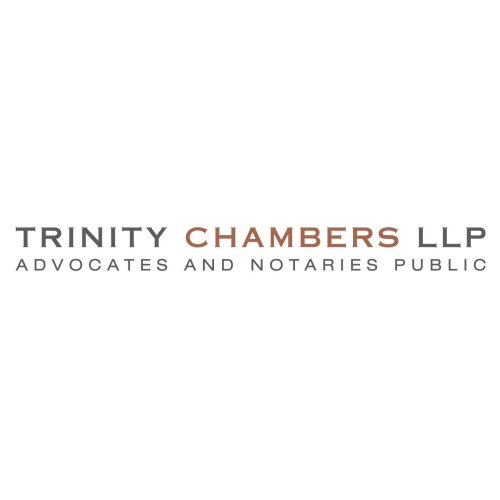Best Conveyancing Lawyers in St Peter Port
Share your needs with us, get contacted by law firms.
Free. Takes 2 min.
Free Guide to Hiring a Real Estate Lawyer
List of the best lawyers in St Peter Port, Guernsey
About Conveyancing Law in St Peter Port, Guernsey
Conveyancing in St Peter Port, Guernsey refers to the legal process involved in transferring ownership of real property from one person or entity to another. This process includes preparing and reviewing contracts, conducting title checks, ensuring compliance with local property laws, and registering the change of ownership with the relevant authorities. Conveyancing is essential for both residential and commercial property transactions. In Guernsey, property law is based on a unique combination of Norman customary law and local statutes, which makes the conveyancing process different from that in the UK or other jurisdictions.
Why You May Need a Lawyer
There are several common situations where hiring a lawyer specializing in conveyancing is essential in St Peter Port:
- Buying or selling a home or commercial property
- Transferring property between family members or as part of an inheritance
- Clarifying issues related to title, boundaries, or property disputes
- Financing property purchases, including dealing with mortgages
- Drafting or reviewing sale and purchase agreements
- Dealing with properties that have complex ownership histories
- Ensuring compliance with local planning permissions and land use regulations
A lawyer can help protect your interests, prevent costly mistakes, and ensure the transaction proceeds smoothly under local legal requirements.
Local Laws Overview
Conveyancing in St Peter Port, Guernsey is governed by a combination of local statutes and customary law. Some important points include:
- Properties in Guernsey are classified as either "Open Market" or "Local Market", with strict rules about who can buy and occupy them.
- The contract for sale (known locally as a "conveyance") must be passed before the Royal Court of Guernsey.
- Property searches and title checks are critical due to the historic nature of property records in Guernsey.
- Transaction taxes such as document duty and court fees apply, payable by the purchaser at completion.
- Financing arrangements must comply with local financial and property regulations.
- Planning applications, boundary issues, and restrictive covenants are common legal challenges requiring professional advice.
Given these unique aspects, it is important to instruct a local advocate (lawyer) experienced with Guernsey property law to manage the conveyancing process.
Frequently Asked Questions
What is the difference between Open Market and Local Market properties?
Open Market properties can be bought and occupied by anyone, including people moving to Guernsey from abroad. Local Market properties are restricted and generally only available to qualified residents or license holders.
Do I need to attend the Royal Court to complete a property transaction?
In most cases, your advocate or conveyancer will attend the Royal Court on your behalf to pass the conveyance, but you may be required to sign certain documents in person or by Power of Attorney.
How long does the conveyancing process take in St Peter Port?
The timeline varies depending on the complexity of the transaction but typically ranges from six to eight weeks from acceptance of an offer to completion.
Are there any taxes or fees when buying property?
Yes, buyers are responsible for paying document duty, court fees, and advocacy fees. The amount depends on the purchase price and other factors.
Can non-residents buy property in St Peter Port?
Non-residents can purchase Open Market properties. Restrictions apply to Local Market properties, which are intended for Islanders or those with proper housing licenses.
What searches are carried out during conveyancing?
Title checks, planning and development checks, boundary searches, and property tax status are all typically researched as part of the conveyancing process.
What happens if issues are found with the property title?
Your lawyer will advise on remedies, which could include negotiating with the seller, resolving outstanding debts or restrictions, or withdrawing from the transaction.
Is a survey required when buying property?
A survey is not mandatory but strongly recommended to assess the condition of the property and cost of potential repairs.
Do I need a local bank account to buy property?
It is advisable to have a local bank account for the transaction, especially to handle payments of fees and property taxes efficiently.
What should I do if I am selling property?
Contact an advocate early to review your title documents, prepare the necessary paperwork, and ensure there are no legal obstacles to the sale.
Additional Resources
For further support and guidance on conveyancing in St Peter Port, the following resources and organisations can be helpful:
- The States of Guernsey - Property and Land Services
- Guernsey Bar (Association of Advocates)
- Guernsey Registry - Property Transfer Records
- Local estate agents with experience in Open and Local Market transactions
- Court of Guernsey - Information for property transactions
These organisations can provide additional information on legal requirements, property classifications, and finding qualified legal professionals.
Next Steps
If you need legal assistance with conveyancing in St Peter Port, the following steps are recommended:
- Gather all relevant property documents and personal identification
- Research and contact a reputable local advocate specializing in conveyancing
- Arrange an initial consultation to discuss your situation and learn about legal fees
- Prepare questions regarding timeline, costs, and any legal concerns specific to your transaction
- Stay in regular communication with your lawyer throughout the process to address any issues promptly
By seeking professional legal advice early, you can navigate the complexities of property transactions in St Peter Port with confidence and protect your interests effectively.
Lawzana helps you find the best lawyers and law firms in St Peter Port through a curated and pre-screened list of qualified legal professionals. Our platform offers rankings and detailed profiles of attorneys and law firms, allowing you to compare based on practice areas, including Conveyancing, experience, and client feedback.
Each profile includes a description of the firm's areas of practice, client reviews, team members and partners, year of establishment, spoken languages, office locations, contact information, social media presence, and any published articles or resources. Most firms on our platform speak English and are experienced in both local and international legal matters.
Get a quote from top-rated law firms in St Peter Port, Guernsey — quickly, securely, and without unnecessary hassle.
Disclaimer:
The information provided on this page is for general informational purposes only and does not constitute legal advice. While we strive to ensure the accuracy and relevance of the content, legal information may change over time, and interpretations of the law can vary. You should always consult with a qualified legal professional for advice specific to your situation.
We disclaim all liability for actions taken or not taken based on the content of this page. If you believe any information is incorrect or outdated, please contact us, and we will review and update it where appropriate.











